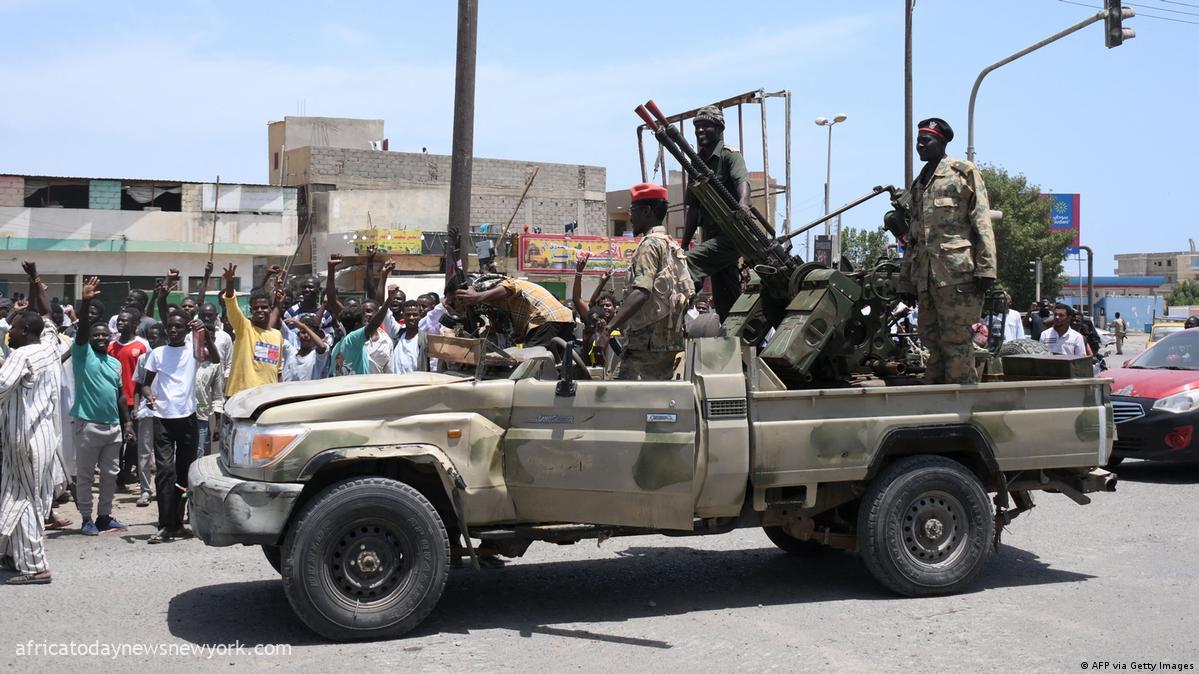Reports reaching the desk of Africa Today News, New York has it that a temporary ceasefire in Sudan has been reached as fighting between two clashing factions entered its sixth week.
Recall that previous attempts between Sudan’s regular army and the paramilitary Rapid Support Forces (RSF) to reach a truce have tended to collapse within minutes of beginning.
However, the new deal will be enforced by a “ceasefire monitoring mechanism,” according to a US-Saudi statement.
Sudanese authorities have consented to reestablish basic services as part of the seven-day humanitarian ceasefire.
Since fighting between the two sides started last month, the nation has fallen into disarray, with more than a million people perhaps having been displaced.
Food, cash, and basic supplies are in short supply, and humanitarian organisations frequently lament their inability to offer enough support in Khartoum, the capital of Sudan, and the scene of much of the bloodshed.
Both the regular army and the RSF have been urged to allow the distribution of humanitarian aid, restore essential services and withdraw forces from hospitals.
The United States and Saudi Arabia, who sponsored the peace talks in Jeddah, said the ceasefire would come into effect on Monday evening.
In a statement which was obtained by Africa Today News, New York, the US State Department acknowledged previous failed attempts at brokering peace in Sudan, but said there was a key difference this time.
‘Unlike previous ceasefires, the agreement reached in Jeddah was signed by the parties and will be supported by a US-Saudi and international-supported ceasefire monitoring mechanism,’ it said, without giving more detail.
Taking to Twitter, US Secretary of State Antony Blinken added: “It is past time to silence the guns and allow unhindered humanitarian access.
‘I implore both sides to uphold this agreement – the eyes of the world are watching.’
The war broke out in Khartoum on 15 April following days of tension as members of the RSF were redeployed around the country in a move that the army saw as a threat.

